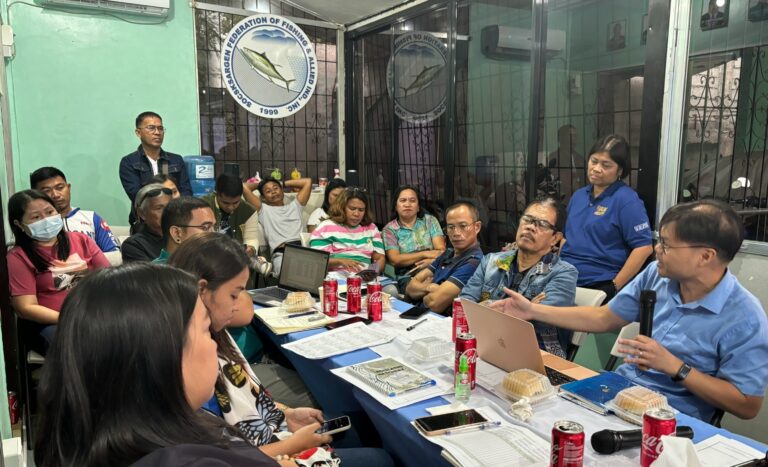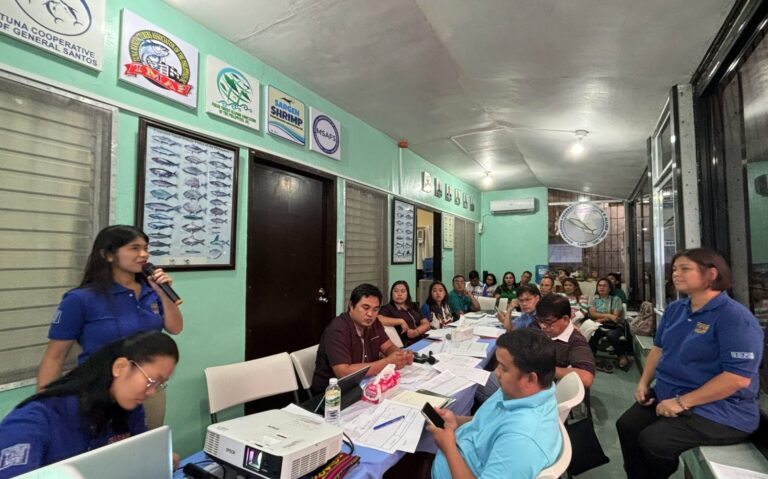
In a proactive move towards bolstering transparency and accountability in tuna handline fisheries management, a pivotal workshop on the validation of handline logsheets was held at the SFFAII Office on April 4, 2024. The workshop brought together stakeholders from BFAR, handline operators, and industry representatives.
The primary aim of the workshop was to streamline the validation process of handline log sheets, which play a vital role in monitoring fishing activities and ensuring compliance with regulations. Attendees were presented with four essential forms integral to the validation process: Handline Logsheet, Fish Catch Report, Transshipment Certificate, and Stowage Plan. These forms are crucial for maintaining accurate records and facilitating effective monitoring of fishing operations.
Participants were presented with the results from the ‘May Pera sa Catch Data’ initiative, offering valuable information regarding the present status of tuna handline fisheries.
The workshop provided a platform for discussing and addressing various challenges faced in the validation process. Topics such as ensuring the functionality of the ‘padala system’ while maintaining traceability and compliance, making transfer certificates a requisite, and implementing a robust tracking system for unloadings outside Gensan were among the subjects deliberated upon. Additionally, discussions also encompassed variations in catch data weight and the status of pending license renewals.
The workshop on the validation of Tuna Handline Logsheets proved to be a valuable platform for addressing pertinent issues and fostering collaboration between stakeholders. By bringing together diverse perspectives, from both regulatory and operational perspectives, participants could work towards practical solutions to common challenges. By bridging the gap between policy implementation and operational realities, the gathering underscored the importance of stakeholder engagement in shaping effective fisheries management strategies.

